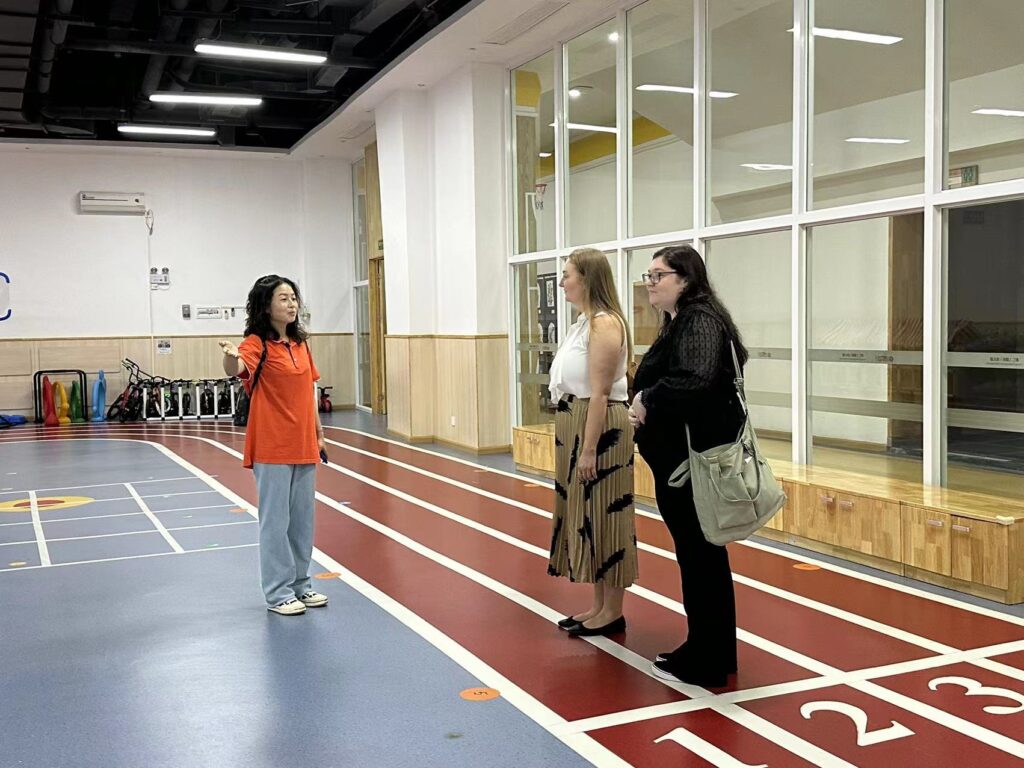Teaching English in China is a rewarding experience, but understanding how you fit in is essential to success.
– Richard Edwell, Teach TEFL in China, 25 April 2025

Structure
Understanding the structure and inner workings of your school can make your teaching life smoother and help you fit in professionally.
School Hierarchies
Chinese schools tend to have clear hierarchies and chains of command and interactions will always be respectful:
Your Position
Assessment and Observation

To avoid feeling like a fifth wheel during your first few days in school you should understand where you fit in as a foreign teacher.
Remember, you’re not just teaching a subject—you’re exposing students to pronunciation, and real-world language use that Chinese teachers do not specialize in.
Where You Fit In

Kindergartens in China are not part of the formal compulsory education system, but they play a major role in child development and early exposure to English—especially in cities and private schools.
Curriculum Focus
The emphasis at this level is on:
English is not formally assessed, so your classes should be engaging and centered on participation and enjoyment.
Your Role as a Foreign Teacher
You’re expected to:
At this stage, your role is mainly to facilitate language exposure, so think of yourself as a language role model who makes learning fun and memorable.
Classroom Environment
Parental Involvement

Primary school marks the beginning of formal education in China. Students start to develop core academic skills and habits. English becomes a required subject—often from Grade 3 onward in public schools (earlier in private ones).
Curriculum Focus
Students are often energetic, curious, and eager to please—but may also be shy using English, especially with a foreigner.
Your Role as an Foreign Teacher
At this level, your main goals are to:
Your lessons should be:
Classroom Environment
Use visual aids, flashcards, props, and clear modeling. Many foreign teachers use PowerPoint slides to keep students moving and engaged.
Games can be used to encourage participation and to assess what students have learned but they should be short and meaningful – “hangman” should be avoided.
Assessments
You’re typically not responsible for grading students—but you might be asked to give informal oral assessments, judge contests, or help prepare students for school events.

To make the most of your time teaching in China and ensure a fulfilling experience, here are some practical tips:
1. Be Adaptable
2. Build Rapport
3. Collaborate with Other Teachers
4. Be Professional and Reliable
5. Embrace the Culture

During your first few days it can feel awkward being in a class but understanding how you fit in at your school and what is expected of you by your colleagues and students will help you to seize initiative and avoid feeling like a fifth wheel, giving you the confidence in your interactions to overall make the best impression in those important early days.
Recent Posts
Teaching English in China is a rewarding experience, but understanding how you fit in is essential to success.
As the Year of the Dragon approaches on the lunar calendar, China is gearing up for the grand celebration of Chinese New Year. For teachers working in China...
5 Fun Chinese TV shows to check out From gripping historical dramas to fantastical tales woven with martial arts mastery, the landscape …
Open Classes in Chinese Kindergartens Plus 12 free lesson plans The words ‘Open Class’ will likely stab fear into the heart of …
China’s Mega-Cities: Urbanization and Modernization China’s rapid transformation over the past few decades has been nothing short of remarkable, and at the …
Spooky Tales from the Heart of China: Chinese Folklore for Halloween Halloween is a time when stories of the supernatural and the …
Discovering Hidden Gems: Guangdong’s Off-The-Beaten-Path Adventure When one thinks of Guangdong, images of sprawling metropolises like Guangzhou and Shenzhen often spring to …
The Great Wall to the Terracotta Army: China’s Must-Visit Historical Landmarks China, with its millennia-old history, boasts a rich tapestry of cultural …
Mooncakes and Lanterns: Delving into the Magic of the Mid-Autumn Festival The Mid-Autumn Festival, known as Zhōngqiū Jié (中秋节) in Mandarin, is …